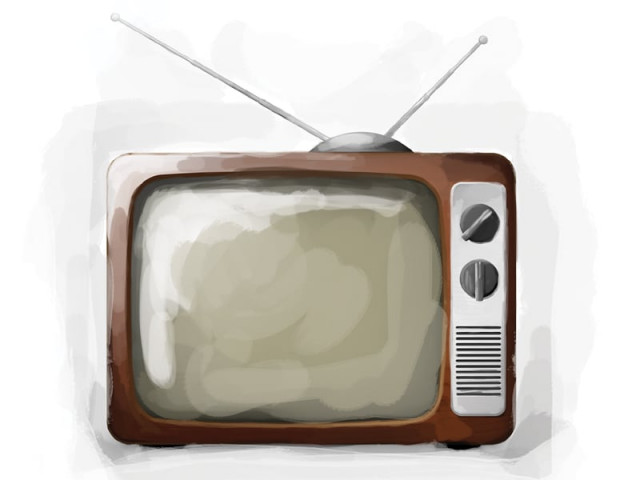Polluting programming?: The airwaves have just become another battleground for politicians, debate experts
Experts debate the impact of the media on Pakistani society.

On Friday morning, some of them gathered at a seminar held at the AQ Khan Institute of Biotechnology and Genetics Engineering at Karachi University to voice their opinions on the matter.
The director of the Shah Abdul Latif Bhittai chair at the Karachi University, Prof. Saleem Memon, who was one of the panelists, said that the media has become a potent force that pervades most professions and shares a strong relationship with society. He compared the current state of the media industry to that of the past in order to highlight how much power it has gained. In the past, daily newspapers and the 9 o’clock news were the only faucets from which Pakistani families could glean information about unfolding events. In addition to this, comic-strips such as Tarzan and Phantom presented the news in an entertaining manner. With the advent of television programming in Pakistan, shows were first broadcast for 6 hours and later the entire day as viewership grew.
Saleem was critical of the current content of the airwaves. “The media has not only damaged young minds, it has also had a bad impact on people of all ages,” he said. “The existence of Indian channels has aggravated the situation.” The language and culture depicted in dramas have shaken the roots of the Pakistani society and have molded a diverse viewership into a heterogeneous group, he said. The repetition of bomb blasts and talk shows which serve as battlegrounds for political parties seem to be perpetually polluting the airwaves, added Saleem.
Another panelist, Prof. Syed Haider Abbas Rizvi, elucidated the psychological impact that the media has on people, especially the victims of natural disasters, bomb blasts and target killings. He said that the repeated portrayal of the traumatic incidents in the media causes them so much suffering that they lose self-confidence and slip into various personality disorders.
The other two panelists of the discussion remained positive about the media’s impact on the Pakistani population. The chairperson of social sciences at IBA, Dr Huma Naz Siddiqui, emphasized the importance of citizen journalism and how it could actually become an ‘opinion-making’ tool for the people of Pakistan.
Anchor and journalist Shaheen Salahuddin also attempted to defend the media by saying that the media is only a reflection of what the masses want to see. The programmes are aired according to the ratings which indicate what people are interested in watching. The programmes that do not attract viewers are pulled off air, she said. She also explained the locus of power, and said that it is not the anchors but the media managers who control the direction of the programme.
She said that some programmes are indeed having a harmful effect on young minds by airing grotesque scenes of violence and carnage, but these are harsh realities that Pakistani society will have to accept. Salahuddin told the audience that young viewers should engage in activities such as volunteer work and entrepreneurship so that they stop pondering excessively about social ills.
Published in The Express Tribune, November 5th, 2011.


















COMMENTS
Comments are moderated and generally will be posted if they are on-topic and not abusive.
For more information, please see our Comments FAQ